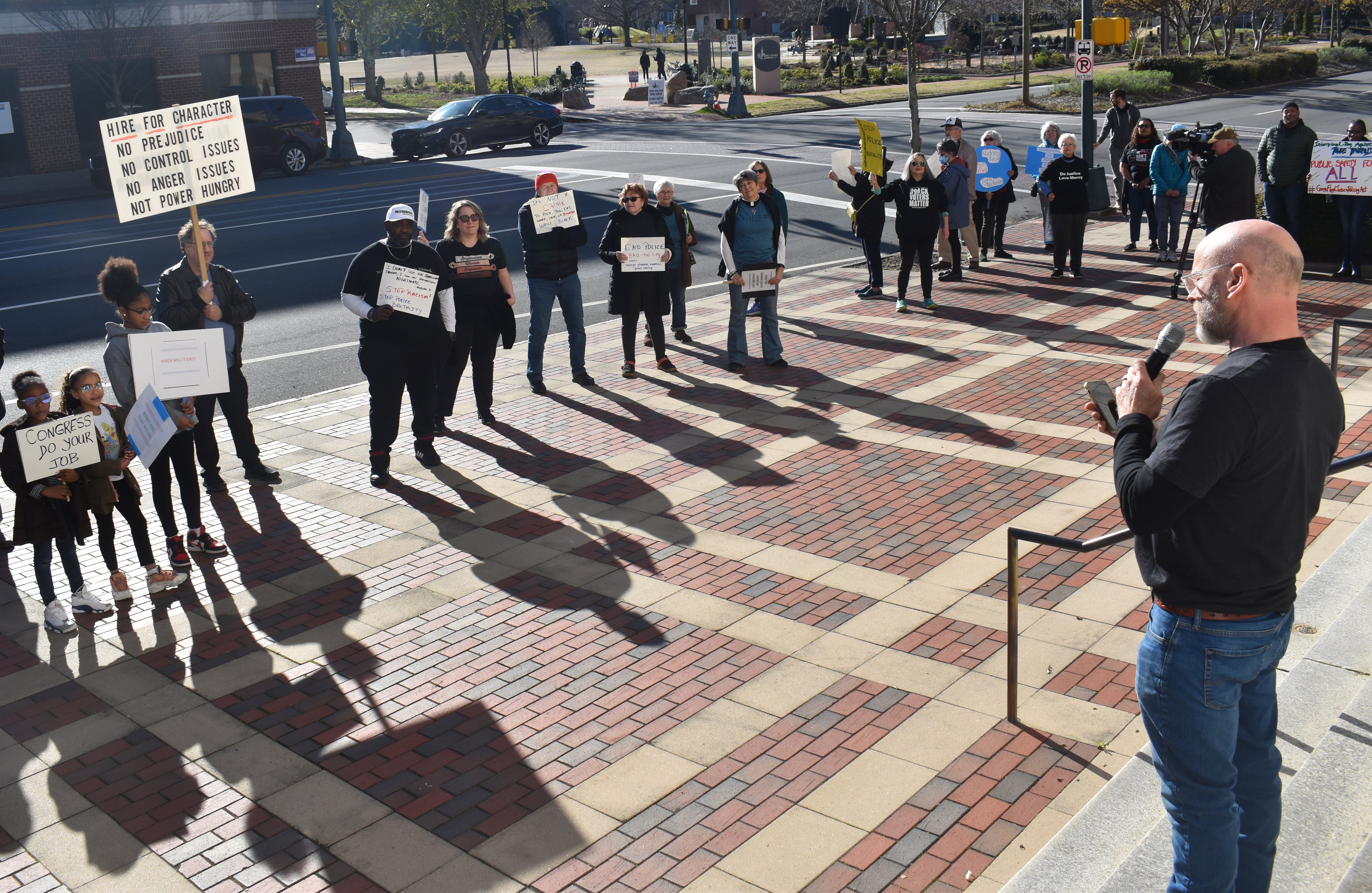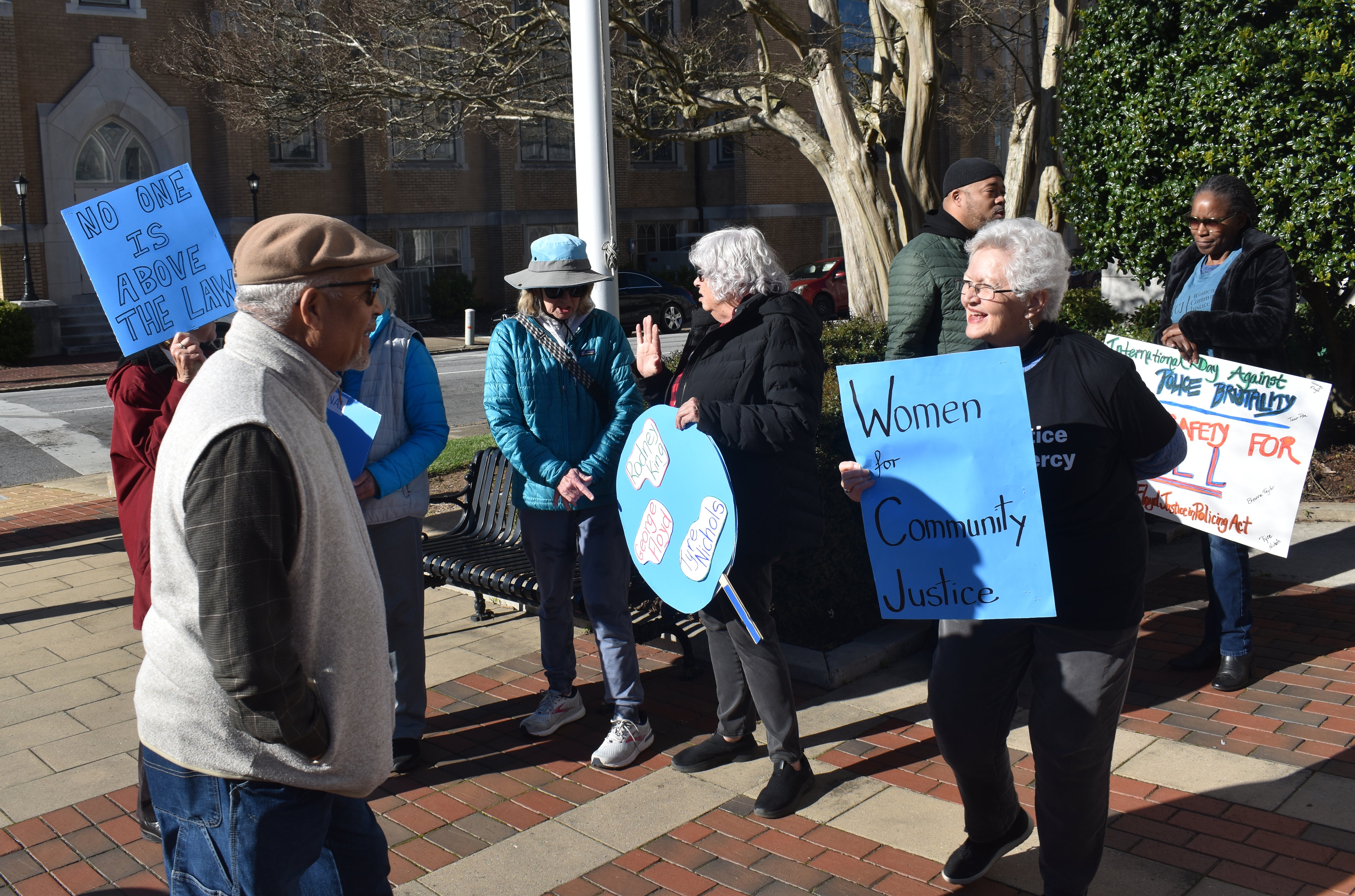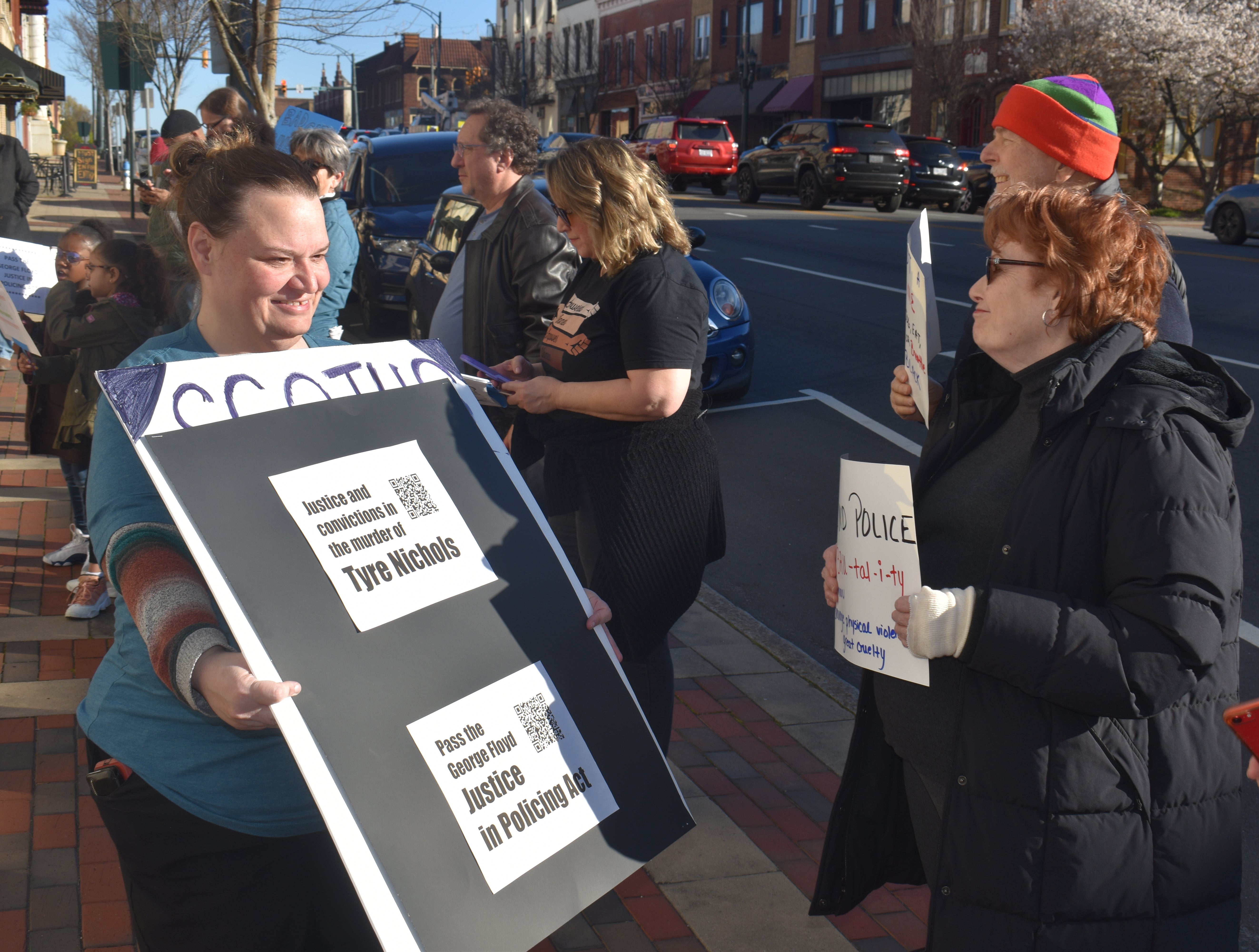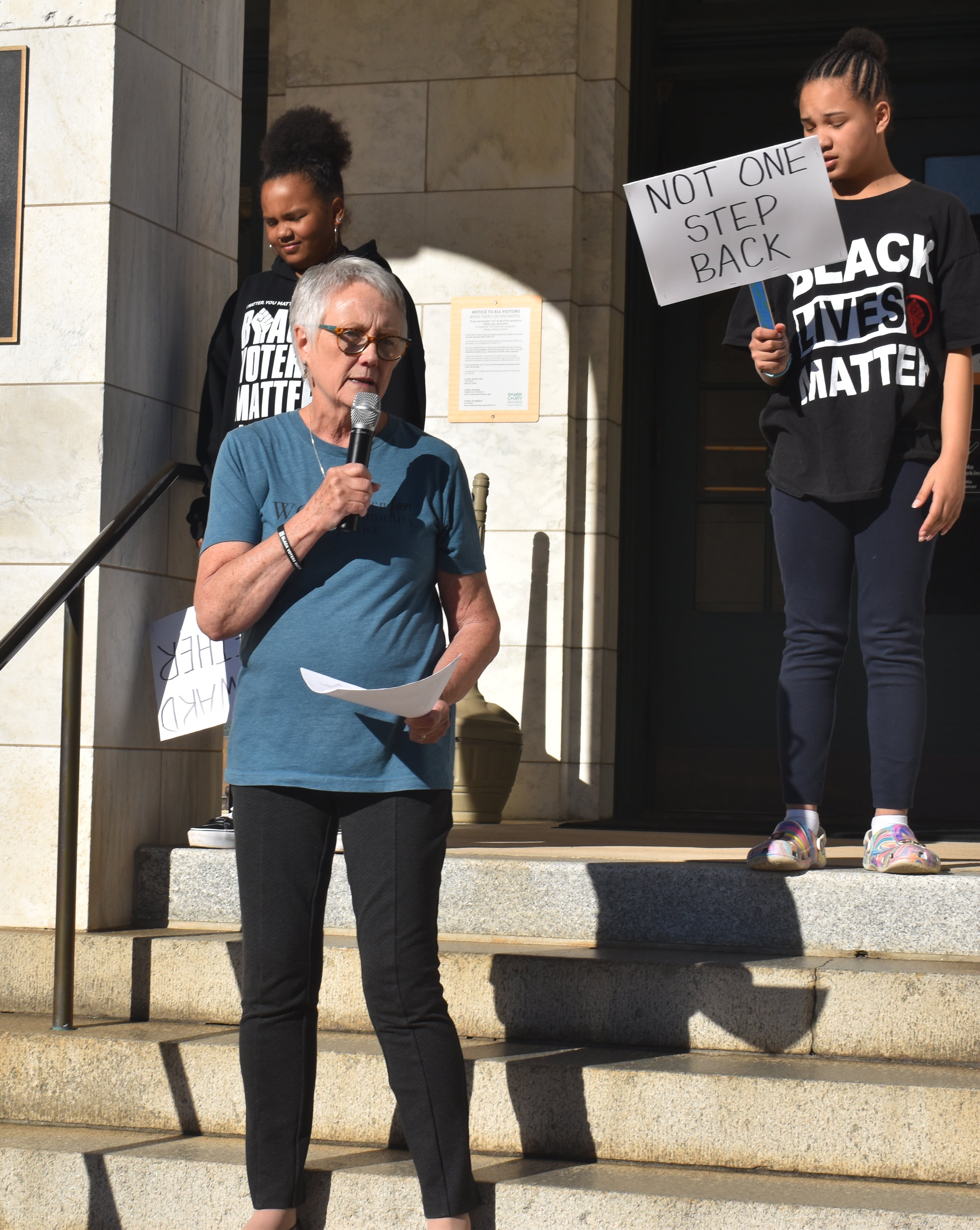Salisbury demonstrators call for an end to police brutality
Published 12:10 am Friday, March 17, 2023
SALISBURY — Demonstrators joined forces on the Rowan County Administrative Building steps Wednesday afternoon in a call to action on International Day Against Police Brutality.
Women for Community Justice, the Salisbury-Rowan chapter of the NAACP and Salisbury Indivisible hosted the event that dozens attended.
“These three social justice groups are coming together for this annual global observance to protest the beating and murder of Tyre Nichols in Memphis and to call on Congress to pass the George Floyd Justice in Policing Act,” said Mary Walker, a co-facilitator of Women for Community Justice.
The George Floyd Justice in Policing Act was a bill put forth by House Democrats in March of 2021 and named for the victim of an incident of police brutality that occurred in Minneapolis in May of 2020.
“Every police officer involved in Tyre Nichols’ beating and murder had not only the opportunity to de-escalate but the responsibility,” said Brian Pfaff, a co-lead for Salisbury Indivisible. “His death was entirely preventable. Tyre Nichols should be alive today, raising his son and photographing sunsets.”
The officer responsible for Floyd’s death, Derek Chauvin, was sentenced to 21 years in prison. Two other police officers at the scene were sentenced to three years for standing by and letting it happen.
The bill that the demonstrators on Wednesday advocated for addresses various policies and issues regarding policing practices and law enforcement accountability.
It increases accountability for law enforcement misconduct, restricts the use of certain policing practices, enhances transparency and data collection, and establishes best practices and training requirements.
The bill enhances existing enforcement mechanisms to remedy violations by law enforcement. Among other things, it does the following:
- lowers the criminal intent standard — from willful to knowing or reckless — to convict a law enforcement officer for misconduct in a federal prosecution,
- limits qualified immunity as a defense to liability in a private civil action against a law enforcement officer, and
- grants administrative subpoena power to the Department of Justice (DOJ) in pattern-or-practice investigations.
The bill would establish a framework to prevent and remedy racial profiling by law enforcement at the federal, state and local levels while limiting the unnecessary use of force and restricting the use of no-knock warrants, chokeholds and carotid holds.
The bill creates a national registry to compile data on complaints and records of police misconduct. It also establishes new reporting requirements, including the use of force, officer misconduct, and routine policing practices.
Walker and Pfaff joined in the refrain of speakers who called on enacting the legislation to hold law enforcement accountable for unconstitutional and unethical conduct wherever it occurs.
“Police brutality is no longer in the shadows of law enforcement in this country,” Walker said. “Salisbury and Rowan County are not immune to this infection.”
Gemale Black, the local NAACP chapter president, explained that members of his organization were gathering in similar settings across the country on Wednesday.
“I came to Salisbury because we want to work with our coalition partners,” Black said. “Whatever happens in Salisbury affects us since we are the NAACP, especially the Salisbury Rowan NAACP. I thought it would be best to stay home and bring light to the history.”
For the Salisbury native, it was a refreshing reminder to see so many people joining in the call for action.
“It made me feel good, you know, that home vibe,” Black said. “We stick together. We stand together. This demonstration brought out a lot of folks. It is not a race thing. It affects the community. When police brutality happens around the nation or in our local community, it doesn’t just affect Black and Brown people. It affects the entire community. Salisbury is community-oriented, and I am happy to be a part of that.”
Black indicated that the event aimed to activate fellow citizens to call upon their elected officials to pass the act. Still, it was also important to have everyone present for a moment of solidarity.
“The fellowship among each other and knowing that your issue is my issue meant a lot,” Black said. “We ask and demand change on a national and federal level but locally how we impact each other and knowing our neighbors stand with us whatever the issue may be.”







